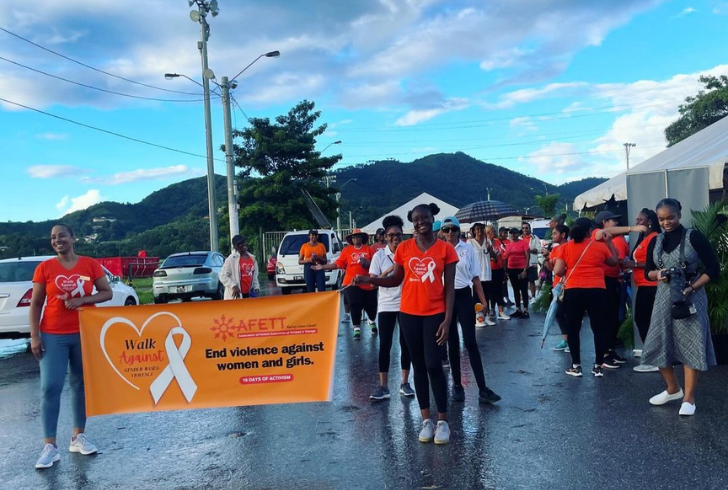
How Effective Are Gender-Based Violence Laws?

Imagine a world where the fear of violence doesn’t cast a long shadow over everyday life, especially for women and girls. Unfortunately, this fear remains a harsh reality for millions around the globe. Gender-based violence (GBV) – any act that harms an individual based on their gender – continues to be a pervasive issue, leaving devastating physical, emotional, and societal scars.
While the UK has made strides in addressing GBV through legislation, the existing framework falls short of creating a truly safe and just environment for all.
The Alarming Scope of Gender-Based Violence

Freepik | Startling data shows that 1 in 4 women have faced abuse before turning 16.
Data paints a grim picture. A staggering 25% of women in England and Wales have experienced some form of abuse before the age of 16, and around a third of women over 16 have faced harassment in the past year alone. These statistics translate into countless individuals grappling with the long-term consequences of violence, impacting their emotional well-being, social standing, and even financial stability.
Thankfully, a vast array of laws criminalize various forms of GBV, including rape, domestic abuse, and stalking. However, the effectiveness of these laws is often hampered by limitations and gaps.
The Disconnect Between Law and Reality
One glaring issue lies in the underreporting of GBV incidents. Only a small fraction of women who experience rape choose to report it, with cultural stigma, fear of reprisal, and a lack of faith in the system often acting as deterrents. This results in a significant number of cases going unrecorded, hindering investigations and prosecutions.
Even when reported, cases face an uphill battle. The complexities of GBV investigations, coupled with insufficient resources and training, can lead to a high number of cases being closed due to “evidential difficulties.” This creates a sense of impunity for perpetrators, further damaging public trust in the justice system.

Freepik | Only a small percentage of rape survivors choose to report.
Furthermore, certain areas of GBV remain inadequately addressed by the current legal framework. For instance, sexual harassment, a widespread issue impacting many women, is not defined as a criminal offense.
Addressing the Root Causes
While a robust legal framework is crucial, true progress requires a multi-pronged approach. One critical aspect lies in addressing the root causes of GBV, which are often deeply ingrained in societal attitudes and power imbalances. Education plays a vital role in this endeavor. By fostering gender equality through educational initiatives, we can dismantle harmful stereotypes and empower individuals to recognize and challenge unequal power dynamics.
Building public awareness about GBV is equally important. This involves not only encouraging victims to come forward but also sensitizing society as a whole to the pervasiveness of this issue. Media portrayal plays a crucial role in shaping public perception, and promoting responsible representation of GBV narratives can help combat harmful stereotypes and foster empathy for survivors.
Seeking Inspiration: A Global Example

lawyergirl868 | Instagram | Zambia’s Anti-Gender-Based Violence Act stands as a strong example.
Looking beyond the UK, we can find valuable lessons from other nations striving to tackle GBV. Zambia’s Anti-Gender-Based Violence Act of 2011 serves as an inspiring example. This comprehensive legislation not only criminalizes various GBV offenses but also establishes vital support systems for survivors, including fast-track courts, protective orders, and access to counseling services.
Building a Safer Future
The fight against GBV necessitates a collective effort. By acknowledging the limitations of the current legal framework, investing in effective enforcement mechanisms, and addressing the root causes through education and awareness campaigns, we can move towards a future where everyone, regardless of gender, feels safe and empowered.
This includes advocating for increased female representation in positions of power, ensuring a diverse and inclusive justice system, and fostering a culture of zero tolerance for GBV in all its forms.
By combining legislative reforms, preventative measures, and an unwavering commitment to societal transformation, we can create a world where the fight against GBV is not just a battle but a resounding victory for all.
More in Legal Advice
-
`
Leo DiCaprio’s Star-Studded 50th Birthday Bash
Leonardo DiCaprio’s 50th Birthday celebrations marked a significant milestone in the life of this Hollywood icon. Known for his legendary performances...
November 19, 2024 -
`
What Does Budget 2024 Mean for UK Business Owners?
In the much-anticipated Autumn Budget of 2024, UK Prime Minister Sir Keir Starmer rolled out some big changes affecting both individuals...
November 13, 2024 -
`
Hollywood Stars Who Stole the Show at the 2024 LACMA Gala
Blake Lively Stuns in Tamara Ralph Couture “It Ends With Us” star Blake Lively made a dramatic entrance at the 2024...
November 12, 2024 -
`
How Can You Leverage Higher Income Limits for Capital Gains Tax Benefits?
As tax laws evolve, understanding how to leverage higher income limits for the 0% capital gains bracket becomes essential for savvy...
November 7, 2024 -
`
Investor David Einhorn Thinks Peloton Can Be Worth Five Times More IF It Cuts Costs
David Einhorn, founder and president of Greenlight Capital, has a bold vision for Peloton. He believes the struggling fitness company could...
November 7, 2024 -
`
How Interactive Matter Maps Improve Legal Research and Planning
Interactive matter maps have transformed legal research and planning by simplifying how law firms manage complex matters. These tools help legal...
November 1, 2024 -
`
The Role of Global Mobility in Business Planning for 2025
In an era where the competition for top talent is fierce, the significance of global mobility in business planning cannot be...
November 1, 2024 -
`
Will AI Legal Advice Empower or Exclude Those in Need of Justice?
The rapid advancement of technology has introduced AI legal advice into the legal profession, creating both excitement and concern. Law firms,...
October 25, 2024 -
`
Trump vs. Harris – Who Does Hollywood Support?
As the race for the White House heats up, celebrity endorsements have become an influential force in shaping public opinion during...
October 22, 2024















You must be logged in to post a comment Login